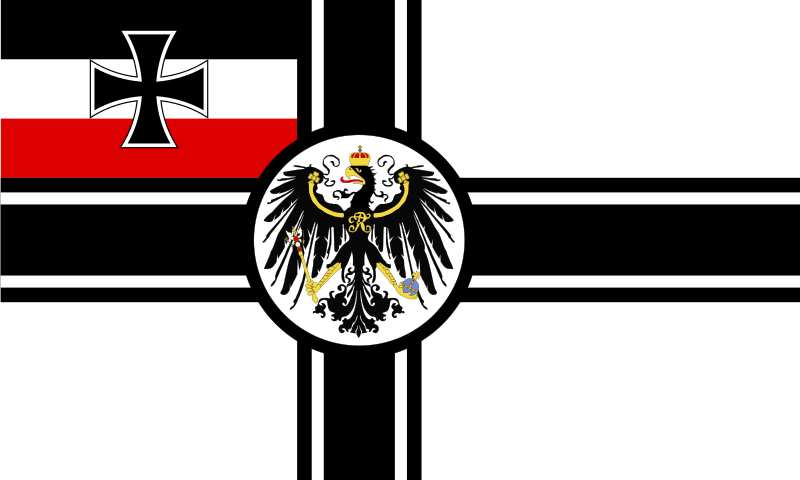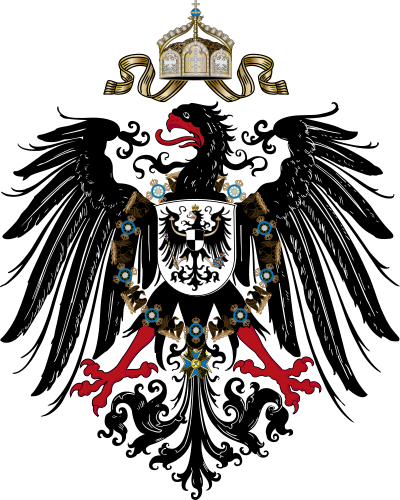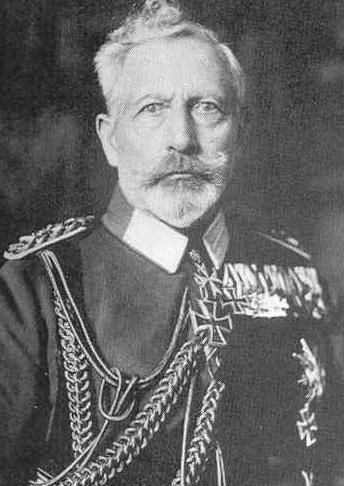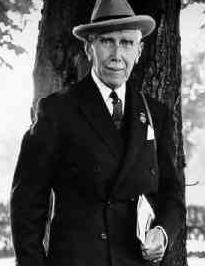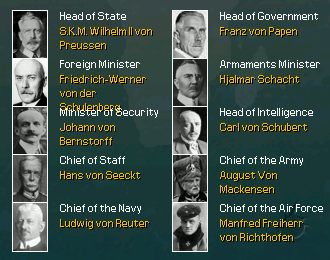Germany
From Kaiserreich
(Undo revision 4690 by LeticiaHarris (Talk)) |
|||
| Line 95: | Line 95: | ||
=== Constituent states of the Reich: === | === Constituent states of the Reich: === | ||
| - | The German Empire consists of 28 constituent states. These states consist of kingdoms, grand duchies, duchies, principalities, free Hanseatic cities and two imperial territories. The Kingdom of Prussia is the largest of the constituent states, covering some 60 percent of the territory of the German Empire | + | The German Empire consists of 28 constituent states. These states consist of kingdoms, grand duchies, duchies, principalities, free Hanseatic cities and two imperial territories. The Kingdom of Prussia is the largest of the constituent states, covering some 60 percent of the territory of the German Empire. |
* '''Kingdoms''': [[Wilhelm II|Prussia]], [[Rupprecht, King of Bavaria|Bavaria]], [[Friedrich August IV, King of Saxony|Saxony]], [[Albrecht, King of Württemberg|Württemberg]] | * '''Kingdoms''': [[Wilhelm II|Prussia]], [[Rupprecht, King of Bavaria|Bavaria]], [[Friedrich August IV, King of Saxony|Saxony]], [[Albrecht, King of Württemberg|Württemberg]] | ||
Revision as of 11:20, 23 February 2012
| ||||
| Motto Gott mit Uns (God with us) | ||||
| Anthem Heil dir im Siegerkranz | ||||
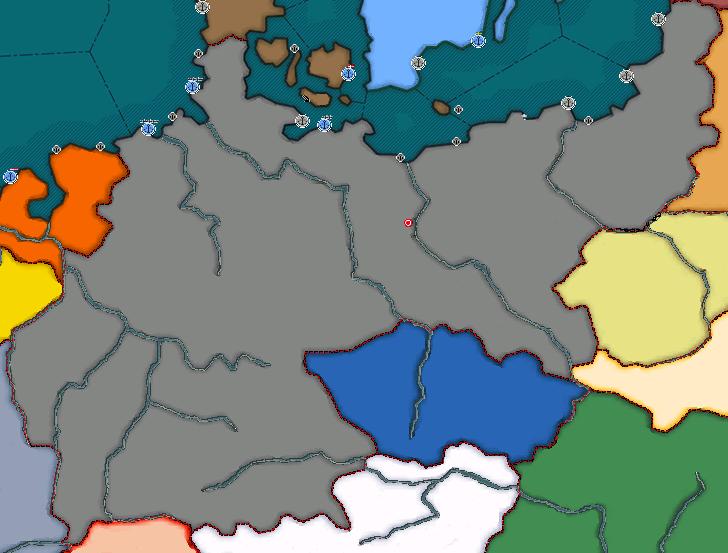
| ||||
| Official Language | German | |||
| Capital | Berlin | |||
| Head of State | Wilhelm II | |||
| Head of Government | Franz von Papen | |||
| Establishment - Proclaimation of the German Empire | 18 January 1871 | |||
| Government | Constitutional Monarchy | |||
| Currency | Papiermark | |||
| Area (excluding colonial empire) | More than 543.000 km² | |||
| Population (excluding colonial empire) | Around 73 million | |||
Germany, or officially the German Empire (German: Deutsches Kaiserreich)is a country in Central Europe. Its borders are shared to the north by the North Sea, Denmark, and the Baltic Sea; to the east by Poland, Lithuania and the United Baltic Duchy; to the south by Austria-Hungary and Switzerland; and to the west by the Commune of France, Flanders-Wallonia, and the Netherlands. Through colonial possessions Germany also borders Spain, National France, Liberia, Abyssinia, Egypt, the Ottoman Empire, Oman, South Africa, Portugal, Siam, the Qing Empire(which includes the Allgemeine Ostasiatische Gesellschaft in addition to the warlord territory of the Yunnan Clique), the Fengtien Republic and Australasia.
The German Empire is a constitutional monarchy composed by twenty-eight states, ruled by the Hohenzollern dynasty. The state of Germany was proclaimed on January, 18 1871 in the Hall of Mirrors of Palace of Versailles in the aftermath of the 1871 Franco-Prussian War. As the main victor of the Weltkrieg, Germany controls a vast overseas empire with colonial holdings in Africa, Asia and the Pacific. Germany is currently the most powerful country in the world with its influence stretching throughout the world. Germany also leads Mitteleuropa, the alliance and economic union with several Eastern European nations.
Contents |
History
Unification
Under the pressure of Prussian Chancellor Otto von Bismarck (better known as the "Iron Chancellor") and in the turmoil of the nationalist awakening in Europe, Germany finally ended with almost one millenium of division between rival monarchies, skilfully kept in place by foreign powers: after having defeated Denmark, Austria-Hungary and France, the German Empire was proclaimed in the palace of Louis XIV, Versailles, on January, 18 1871: uniting all the scattered German-speaking areas (except Austria) under the rule of Germany's first Kaiser, Wilhelm I of Prussia. The new country secured his position as a great nation, forging several alliances in order to diplomatically isolate the defeated France, which, eager to recover Alsace-Lorraine (Elsass-Löthringen); began to establish colonies outside Europe in 1884. Germany mourned her first Kaiser on March, 9 1888; his son, Friedrich III, died of incurable throat cancer only 99 days later. Wilhelm II subsequently acceeded to the throne. Considering Bismarck's foreign policy as too soft, the Kaiser dismissed the Iron Chancellor in 1890, replacing him with more malleable replacements; Bismarck died eight years later.
"The Place under the Sun"
Wilhelm II followed imperialist policies which were mostly fashionable in Europe of these times, obssessed with a dream of a "Place under the Sun" for Germany: claiming much more colonial possessions, and beginning a naval rivalry with Britain on the advices of admiral Alfred von Tirpitz. At the time, many in Germany and elsewhere considered these policies as highly risky and dnagerous - especially as the alliances that Germany concluded before were not renewed, and an isolated Germany (except for an alliance with Austria-Hungary, and a fragile one with Italy) was faced with the Entente Cordiale between Britain and France, which secured ties with Russia. Europe came close to war in 1911 with the Agadir Crisis, when Wilhelm II claimed Morocco for Germany. This crisis, adding to the Kaiser's reputation as an irresponsible firebrand, was defused without a war breaking out - but the outbreak had been merely delayed for a few years. However, as history was soon to show, Wilhelm II's gamble would pay off, he would achieve all his aims and more, and even many of his sharpest critics would be forced to admit as much.
Weltkrieg
Archduke Ferdinand was assassinated in Sarajevo on June 28, 1914 and Austria-Hungary declared war on Serbia to cease her destabilisation, and Germany backed Austria-Hungary; soon, German Empire found herself at war against France, Britain and Russia. Quickly invading Belgium and Luxembourg, the German advance was stopped at the Marne in 1914, and also in Poland by the weak Russian forces. The war soon became nothing less than a series of indecisive and bloody offensives, the worst of them being the Battle of Verdun in 1916. In 1917, Russia collapsed into Revolution and thousands of soldiers were dismissed from the Eastern Front to the West. In March 1919, after three and a half years of attritional warfare, the German offensive on the Western Front finally succeeded in overrunning the Entente defences. French morale collapsed along with her army against the onslaught as the Reichswehr exploited the breakthrough and marched towards Paris and the Loire valley. As the army collapsed, the exhausted French surrendered and allowed the German army to occupy their proud nation. Following this stunning victory, German troops were rapidly sent to the existing Italian and Turkish fronts, and forced entry into the lightly defended parts of northwestern Italy. With the arrival of these veteran troops, the Central Powers defeated both the British and Italian armies, restoring Ottoman power in the Middle East and occupying Northern Italy. The war with Britain and the remaining Entente forces overseas dragged on inconclusively until 1921 when a Peace with Honour was secured, ending the Weltkrieg. Even if white peace had been concluded with Japan, Portugal and Britain, France, Belgium, Russia and Italy had almost ceased to exist, and were forced to give their colonial holdings to a victorious Germany.
Road to Mitteleuropa
Not everything was well within Germany though - 7 years of war had pushed her population to the brink of starvation, German industry stagnated following the war as demand was slashed and the government costs mounted as they were forced to subsidise conversion back to domestic production. The state struggled to feed its population and fought the ever-present danger of inflation that had arisen from printing money to fund the war effort, which continued exist in order to secure the terrible situation in Russia, still in a civil war. In 1924, Grand Admiral von Tirpitz became Reichskanzler and his policies started a golden age of German Weltpolitik, bringing the economy under control through market regulation, subsidising food imports with money gained from reparations and the sale of technology to Germany’s allies and client-states. Tirpitz’s hugely successful regime culminated in the well-executed occupation of British colonial possessions following the outbreak of the British Revolution and the establishment of Freistaat Mittelafrika, created along with the Allgemeine Ostasiatische Gesellschaft in order to reduce the full powers of colonial governors. His only failures were his inability to stop the spread of Syndicalism in Europe, to secure the worsening economic situation, and an intervention in China, which only worsened the situation. However, since the Grand Admiral’s death in 1930 things have been going downhill for Germany. A general slowing of the world economy is decreasing industrial output and national income as other nations recover their manufacturing power, and growing nationalism in Germany’s eastern clients is starting to cause tensions as both populations and governments begin to drift away from the Reich. The Kaiser is getting old, and so is the welfare state put in place by Bismarck himself, and if Germany has never been so powerful, it has never had such heavy burdens either.
Politics
Germany is a federal constitutional monarchy ruled by the German Kaiser (who is also King of Prussia). Although Germany has many political parties, the state policies are rather authoritarian. The Constitution of the Second German Reich has stood in place for 60 years. The Chancellor and Government are appointed by the Kaiser, but legislation needs to be approved by the Reichstag, a chamber elected proportionally by universal male suffrage, and the Bundesrat, consisting of representatives from each of the states. While the Reichstag is far from a rubber-stamp institution, and has become increasingly vocal and assertive over the past thirty years, it is not yet strong enough that it can actually bring down a Government. The relative weakness of the Reichstag has meant that a wide range of voluntarist pressure groups have sprung up, attempting to push forward a range of economic, political and sectional causes. In addition, the various states of the Reich have considerable autonomy and influence over local matters, including education, law enforcement and arts patronage. While many of the smaller states have extremely liberal constitutions, the unequal Estate-based electoral system for the Prussian Landtag remains a bone of contention.
|
Kaiser and King of Prussia: His Imperial and Royal Majesty Wilhelm II von Hohenzollern (born 27 January 1859)
Reichskanzler: Franz von Papen (Deutschkonservative Partei, born 29 October 1879)
State Secretary for Foreign Affairs: Graf Friedrich Werner von der Schulenburg ( born 20 November 1875)
State Secretary for Finance: Doctor Hjalmar Schacht ( born 22 January 1877)
State Secretary for the Interior: Graf Johann Heinrich von Bernstorff ( born 14 November 1862)
Head of the Abwehr: Carl von Schubert
Chief of the German General Staff: Field Marshal Hans von Seeckt ( born 22 April 1866)
Commander of Reichsheer: Field Marshal August von Mackensen ( born 6 December 1849)
Commander of Kaiserliche Marine: Admiral Ludwig von Reuter ( born 9 February 1869)
Commander of Luftstreitkräfte: Freiherr Manfred von Richthofen ( born 2 May 1892)
Constituent states of the Reich:
The German Empire consists of 28 constituent states. These states consist of kingdoms, grand duchies, duchies, principalities, free Hanseatic cities and two imperial territories. The Kingdom of Prussia is the largest of the constituent states, covering some 60 percent of the territory of the German Empire.
- Kingdoms: Prussia, Bavaria, Saxony, Württemberg
- Grand duchies: Luxemburg, Baden, Hesse, Mecklenburg-Schwerin, Mecklenburg-Strelitz, Oldenburg, Saxe-Weimar-Eisenach
- Principalities: Lippe, Reuss - junior line, Reuss - senior line, Schaumburg-Lippe, Schwarzburg-Rudolstadt, Schwarzburg-Sondershausen, Waldeck and Pyrmont
- Free Hanseatic cities: Bremen, Hamburg, Lübeck
- Imperial territories: Elsaß-Lothringen, Lüttich
Special Case
The Vereinigtes Baltisches Herzogtum (United Baltic Duchy) is a quasi-independent state. Whilst not de jure part of the German Empire, Duke Adolf Friedrich is not a sovereign monarch, but is subordinate to the German Emperor in the same manner as other monarchs of the German Empire. However, the Duchy currently has much broader interior autonomy than constituent states of the Empire, and the right to maintain a locally recruited defence force to ensure interior peace, as well as serve as first lines in case of a possible Russian invasion. There are plans to integrate the Duchy closer into the Empire, however.
German political parties
See: German parties
Despite his authoritarian nature, the German political system is favourable to be multiparty; each one is representing some part of the Kaiserreich, and in these troubled times, each one can gain much power. The current Reichstag is ruled by a Deutschkonservative Partei (DKP) majority, confident to the Kaiser's decision.
Deutschkonservative Partei (DKP) (representing the Prussian Junkers, aristocratic, agrarian), presided by Franz von Papen and Carl Friedrich Goerdeler
Sozialdemokratische Partei Deutschlands (SPD) (social-democrat with several marxist militants), presided by Karl Kautsky and Otto Wels
Zentrumspartei (Catholic), presided by Ludwig Kaas and Heinrich Brüning
Alldeutsche Verband (Pan-Germanists, national-populist ideology), presided by Ernst Röhm and Gregor Strasser
Nationalliberale Partei (NLP) (democrat but conservative and nationalist), presided by Paul von Lettow-Vorbeck and Johann Schwerin von Krosigk
Fortschrittliche Volkspartei (FVP) (progressist, liberal, democrat), presided by Walther von Rathenau and Wilhelm Külz
Deutsche Volkspartei (DVP) (nationalist and populist), presided by Alfred Hugenberg
Military
Army
The Reichsheer is a profesionnal army with modern armament and high-class training: the well-known Prussian military quality still exists, represented by the excellent German generals, all belonging to the Junker aristocratic elite. Germany maintains the second-largest army in the world, after Russia. Most of the ground forces are based in mainland Germany, forming part of a defence positive created in the late 20's by Grand Admiral and Reichskanzler von Tirpitz: Flanders-Wallonia and the Siegfried Line in Elsass-Lothringen in the west, and the Eastern European satellites as buffer states against Russia in the east. The security of the colonies, save for strategic garrisons in Morocco, Singapore, the Pacific islands and West Africa, are entrusted to private militias raised and maintained by the powerful Stadthalters of Mittelafrika and Allgemeine Ostasiatische Gesellschaft.
Navy
The Kaiserliche Marine is the largest and arguably the most powerful navy in the world, though it's supremacy compared to other contemporary navies is not of the same scale as that of the Royal Navy before the Weltkrieg. Boasting the largest (if a bit dated) battleship fleet in the world, the Kaiserliche Marine is also one of the few navies in the world to own aircraft carriers. With bases around the world, the Kaiserliche Marine is the Empire's main method of enforcing the German interests abroad and maintaining security among the vulnerable sealanes that transport goods to and from the colonies. The Kaiserliche Marine is currently headed by Admiral Ludwig von Reuter.
Air Force
The Luftstreitkräfte is headed by Generalfeldmarschall Manfred von Richthofen, the first one of his kind in the Air Force. The largest air force in the world, the Luftstreitkräfte very much focuses on supporting army operations with a considerable fleet of tactical bombers. The air force also maintains a presence abroad, most prominently at Tsingtau, where an entire Luftlotte is located.
Allies and political aspects
In case of war, Germany can rely upon the support of the Mitteleuropa system, linked to her through royal bloodlines, and, should the need arise, her close partners in the Weltkrieg: Austria-Hungary, Bulgaria and the Ottoman Empire.
The Generalfeldmarschalls are also a subject of pride for the German army. Currently living marshals include August von Mackensen, hero of the Weltkrieg; Hans von Seeckt, current Chief of Staff and hero of the German intervention in China; Erich Ludendorff, architect of 1919 Great Summer Offensive; Wilhelm Groener, former governor of Allgemeine Ostasiatische Gesellschaft; Paul von Lettow-Vorbeck, hero of the operations in Africa during the Weltkrieg; Manfred von Richthofen, the Red Baron, still very popular; and Werner von Blomberg, architect of the Mitteleuropa alliance. Also bestowed with this title are the three German kings, save the King of Prussia: Rupprecht of Bavaria, Friedrich August IV of Saxony and Albrecht of Wurtemberg.
Some foreign officials of friendly countries are also officially German Field Marshals, such as all the monarchs of Mitteleuropa, Ferdinand I of Bulgaria, Haile Selassie I of Abyssinia, Pu Yi of China, Otto I of Austria-Hungary, Mehmed Cavid Pasha of Ottoman Empire, Alfonso XIII of Spain and Archduke Friedrich, Duke of Teschen. The exiled King of England, George V, and British Prince Arthur, Duke of Connaught are still Generalfeldmarschalls, but due to their country's position during the Weltkrieg, these honourific titles are generally considered null and void.
Foreign relations
Alliance (also known as Mitteleuropa) with Flanders-Wallonia, Finland, United Baltic Duchy, Lithuania, Ukraine and White Ruthenia
Colonialist relationship with Abyssinia, Qing Empire and Poland
Friendly relations with Austria-Hungary, Bulgaria, Ottoman Empire and Spain
Declared hostility against Commune of France, Socialist Republic of Italy, Union of Britain, Canada and National France
Colonial empire
German colonial possessions in Europe: Crete, Malta
German colonial possessions in Africa: The Freistaat Mittelafrika, the Suez Canal Zone, German Somaliland, Madagascar, Mauritius Island, Reunion Island, Gambia, Sierra Leone, and Morocco
German colonial possessions in Asia: Allgemeine Ostasiatische Gesellschaft, German Indochina, the Kiaochow Bay Concession, Singapore, German Borneo, German Yemen, Ceylon, and Hainan Island
German colonial possessions in Oceania: Kaiser-Wilhelmsland, the Bismarck Archipelago, the German Solomon islands, Bougainville Island, Angenehm Island, the Marshall Islands, the Mariana Islands, the Caroline Islands, and German Samoa
Culture
Women in Germany
While economic and social forces have ensured that women fill many jobs in the major cities, particularly in service industries and clerical work, the conservative Reich establishment has thus far prevented them from having a vote in Reichstag elections (although some of the more progressive states, such as Wurttemburg and Baden, have permitted female voting in Regional Assemblies). However, the long presence of female politicians in public life, not least of whom is Rosa Luxemburg, grandmother of German Socialism, has made Frauenwahlrecht a hot political issue.
Literature
Germany´s top author at the moment is Erich Paul Remark, whose anti-war book 'Durchbruch' (1929), followed by 'Der Weg vorwärts' (1931) have become immensely popular, despite opposition from the Großer Generalstab. He is currently working on his third book, set after the final armistice with Britain. Some rumors speak of an alternate history novel, "Führerreich", telling the story of a Germany which lost the Weltkrieg. Nobel Price Thomas Mann is a well-known admirer of the Kaiser, and has often been named a potential foreign minister due to his personal prestige. Ernst Jünger, who inaugurated the fashion of the "Weltkrieg diaries" (depictions of the war from the point-of-view of the soldiers), is currently a high-ranking official in the Mittelafrikan administration. German writers have also been involved in extreme politics: Bertolt Brecht's plays barely avoided censorship due to their celebration of syndicalist values, although this has been diluted somewhat in those plays which he has made with his far more conservative collaborator Oswald Spengler, while Alfred Rosenberg's nationalist read-through of German philosophy (Kant, Hegel, Nietzsche) has a limited but noticeable audience in Germany.
Music
While Germany officially endorses classical music - especially Wagner, Bach, Brahms, Mozart, Händel and all German composers, it isn´t quite as popular as it once was. Even the Kaiser has begun worshipping Scott Joplin. The spouse of Kronprinz Wilhelm, Princess Cecilie, is a well-known friend of contemporary musicians. Prestigious composers amongst the likes of Siegfried Alkan, Bogislaw Hubermann, Wilhelm Kempff, Elly Ney, Wilhelm Furtwängler and Herbert von Karajan often perform small concerts for the royal family at Cecilienhof Palace.
Cinema
Babelsberg studios, in Berlin's suburbs, are the greatest in Europe and rival even Hollywood in production, quality and number of films. German cinema has become a worldwide industry, and the dream factory for the whole of Europe. Moreover, in large part due to the efforts of the now deceased Friedrich Murnau, it has managed to surpass its tentative roots as a mere government propaganda tool, and take a more artistic approach. Popular with the German public are the likes of Hans Albers and Marlene Dietrich, and the renowned comics of Ernst Lubitsch, though Fritz Lang's works are often considered too dark and realistic for viewer's tastes.
Painting, sculpture, architecture
The Dada wave has also spread to Germany, a divided country who enjoyed the favorable conclusion of the Weltkrieg while it suffered of the long war and blockade: Max Ernst and George Grosz's work, for instance, is characterized by the trauma of the war years. In urbanism, Walter Gropius and his young rival, Albert Speer, struggle for the attention of the German government, intent on majestic monuments in memory of the Weltkrieg. Arno Breker's statues, first conceived as a celebration of the German man, were censored due to their nudity, judged indecent by German authorities.

